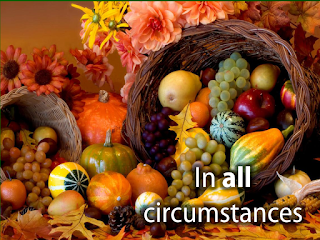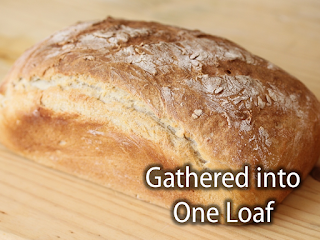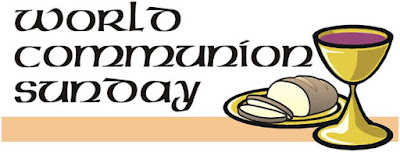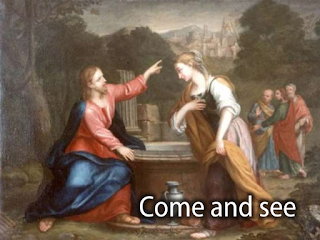Hespeler, 16 October, 2016 © Scott McAndless – The Jeff-a-thon
1 Kings 18:41-46, Isaiah 40:27-31, 1 Corinthians 9:24-27
O |
n Saturday, May 28 at 7:56 am, I did something that I had never imagined that I would do in all my life of my own free will. I stepped out of my front door and started to run and didn’t stop running until I had travelled about four kilometers. I ran through the arena parking lot down the streets, down the long path through woods to Queen St, I ran along Queen St. right in front of the church here, on through Forbes Park and up the trails that run through Woodland Park. And there, after about 4 kilometers as I said, and half way up what has to be one of the steepest hills in all Hespeler (that I foolishly took at a run), I stopped. My breath was ragged, I was carrying a great weight upon my chest and my legs and even (much to my surprise) my arms felt like lead. The muscles in my limbs would continue to be sore for a couple of days.
Why did I put myself through that? When I describe it like that, it really doesn’t sound like a very fun way to spend your Saturday morning. Well, I probably don’t need to tell most of you why I did it because you have already heard me say that I had made a decision that I wanted to run in the Jeff-a-thon and had set as a goal to run the full 10 km distance and do it in an hour. I’m not going to go over the reasons here today for why I felt that the Jeff-a-thon was a good enough reason for me to change what had been, up until that point, a very successful strict no running policy. You’ll have lots of chances to hear about that when you come out to Crieff Hills this afternoon.
But the process of getting from that morning back at the end of May to the place where I am now – ready and confident that I can do what I set out to do this very afternoon – has been an interesting journey to say the least and I believe that there are some spiritual lessons in that journey for all of us today.
I don’t pretend to be an amazing athlete. I don’t pretend to have a better grasp of training to run than lots of other people who could probably give you much better advice than me. But I can say that, over the last few months, I have learned how to run. I would even say that I have changed my identity from being a non-runner to being a runner because I know that this afternoon will not be my last run. I don’t know how I am going to do it through the coming winter, but I do know that I am going to continue running, that it is now a necessary part of my life. And it is something that actually gives me a new way of looking at parts of the New Testament.
As you may have noticed, there is a long tradition in Christian preaching of preachers and teachers seeking to bring out spiritual truths with analogies and metaphors related to sports. In fact, you are Canadians, I’ll bet that you have heard hundreds – maybe thousands – of sermons that are built around hockey metaphors. So many, in fact, that it might surprise you to learn that the Bible doesn’t actually say anything about hockey at all. I mean, it’s incredible – almost as if no one had ever heard of Canada’s favourite sport when the Bible was being written. So no hockey at all, but would it surprise you to learn that there is one sport that is used as an analogy of the Christian life in the New Testament not once but four times?
That sport is running. It is a metaphor used once in the Letter to Hebrews and three separate times in the writings of the Apostle Paul. I find it quite amazing that on three different occasions, Paul was looking for some image that would illustrate the kind of life that he was calling his disciples to live and each time Paul chose to write about running. It actually makes me suspect that either Paul was a runner himself or that he was a big fan of what actually was the most popular sport in the ancient Greek-speaking world.
So I thought that maybe it was about time that someone preached a sermon on the sport of running and what might have to teach us about the Christian life. I would like to think that, over the past few months, I have learned a little bit about running. What lessons are there in what I have learned that we could all apply to how we live out our lives as Christians in the modern world?
Of all the things that the Apostle Paul says about running, the one idea that he keeps coming back to is the idea of having a goal or aim in your running. In his letter to the Galatians, Paul writes, “Then I laid before them… the gospel… in order to make sure that I was not running, or had not run, in vain.” To the Philippians he writes, “I can boast on the day of Christ that I did not run in vain.” And finally, in the passage we read this morning, he says, “I do not run aimlessly.”
Now, I think that it is very fair to say that, if you are running in a race and you do not have the slightest idea of where the finish line is, you are not going to win that race. That much is obvious when you are running. But Paul is not talking about winning a foot race in this passage but about how to conduct your life as a Christian. So what, about that, can we apply to the life of Christian faith? I think it is true that many of us (and I will readily include myself in this) do often seek to live out our Christian life without thinking too much about our aims and goals in it. It is so easy to just develop certain habits of prayer and devotion, church attendance and activities and think that to do these things is what it means to be a Christian. And it is not that these are bad activities. These are very good habits to be in, but it can be so easy for us to lose sight of why we do these things. And when that happens, we begin to make the activities themselves the goal.
Have you ever heard people in church, when challenged to explain why they do certain things in certain ways, respond like this: “Well, that’s how we have always done it”? No, I’ve never heard that in a church either! Well, if, by chance, you ever do hear it, it might just be a sign that you are not as aware of the purpose of being a church as you need to be. The purpose of the Christian life is clear (even if the question of how we achieve that purpose may adapt and change). We are here to build up the kingdom of God. We are here to proclaim good news to the world in word and in deed. Paul uses the image of the runner to remind us that we must ever keep that aim in view in everything that we do.
The second thing that Paul talks about in the sport of running is dedication. “Athletes exercise self-control in all things,” he says. After that he lays out in practical terms exactly what that sort of self-control looks like: “I punish my body and enslave it,”he says.
Again, this is not something that I can really say that I understood until I seriously started to train to run 10 kilometres. I have learned that it is one thing to run 3, 4 and even 5 kilometers, but that it is quite another to run 7, 8, 9 and 10. At some point you are going to hit that place where your body is going to be crying out that it can go no further and do no more and you are only going to get more out of yourself if you push beyond what your body wants, effectively making your body a slave to your will.
That level of dedication seems to be difficult for many people to find these days. One of the reasons why we find it so hard, I believe, is because of the way we turn everything into an opportunity to shop. Do you realize that there is an unprecedented interest in fitness in our society and much of it is driven by the growth of activity trackers like Fitbits, Apple Watches and other similar devices? People are collectively spending millions of dollars these days on these sorts of devices.
And the growth in the use of these devices has gotten to a point where researchers are able to study the impact that they are having on our overall health and fitness. And do you know what they are finding? They are finding that there really isn’t much correlation between the sales of fitbits and health and weight loss. It is not helping very much.
And you know why that is? It because we have fallen into this habit of thinking that the way we solve all of our problems is by buying things. And so when you want to lose weight or get healthier, you just go out and buy a gym membership or a fitbit and you’re done and everything has been taken care of. Oh it is not as if I have to actually go to the gym or walk more than a few feet is it? Haven’t I already done enough by spending my money to get healthier? Shouldn’t what I bought do all the rest?
Can you see the problem with this approach? These devices are terrific and they certainly can help you in your quest for better health, but the device itself doesn’t solve anything for you. Without some commitment and dedication, it is actually totally useless.
And we actually have the same problem with the Christian life as well. We are often tempted to replace dedication with consumerism. Here’s an example for you: did you realize that the Bible has long been one of the best selling books in the world and Bible sales have remained strong despite many other changes in society. The book sells like hotcakes. But here is another statistic: while the Bible still sells like crazy, knowledge of what the Bible actually says and contains continues to drop like a stone. It turns out that the world’s best selling book just happens to be one of the world’s least read books.
What is going on? Isn’t it obvious? People are treating Bibles like fitbits and gym memberships. When they want to get a little bit of spirituality or religion, what do they do? They go out and buy a Bible – a nice one, a special version that promises to make all kinds of applications to their life for them. They buy the Bible, bring it home and throw it on the shelf and they are done. Read it? Why would I bother reading it? Isn’t it enough that I spent so much money to get it? Once again, the Bible is a terrific tool and a great help, but without a bit of commitment and dedication it really cannot ever amount to anything.
There is one other connection that Paul makes between the sport of running and the Christian life: the reward. Runners do it, he says, “to receive a perishable wreath, but we an imperishable one.” He is referring, of course, to the kinds of prizes that were commonly handed out to winners of races in the ancient world which were wreathes woven out of various kinds of foliage. The wreathes themselves had little value and were only prized because they represented the glory that came to the victor. Paul seizes on the perishability of these wreathes in order to contrast them to the prize that comes with the Christian life that we do receive here and now but that also is able to endure far beyond the confines of this world.
The rewards of physical running (even if you never win an important race like at the Olympics) are real. They can change your life in so many positive ways. How much more the rewards of a Christian life well lived, especially when those rewards endure long after an Olympic gold medal has turned to dust.
So, yes, think of your Christian life as a race. Keep the goals of that life – the finish line – ever in view. Let commitment and dedication to those goals ever keep you moving towards them. Remember the prize that is yours today but that will endure for you forever. Run the race with endurance.
#140CharacterSermon Christian life is like a race: keep goals ever clear b4 you, practice discipline and commitment, claim an eternal prize.












